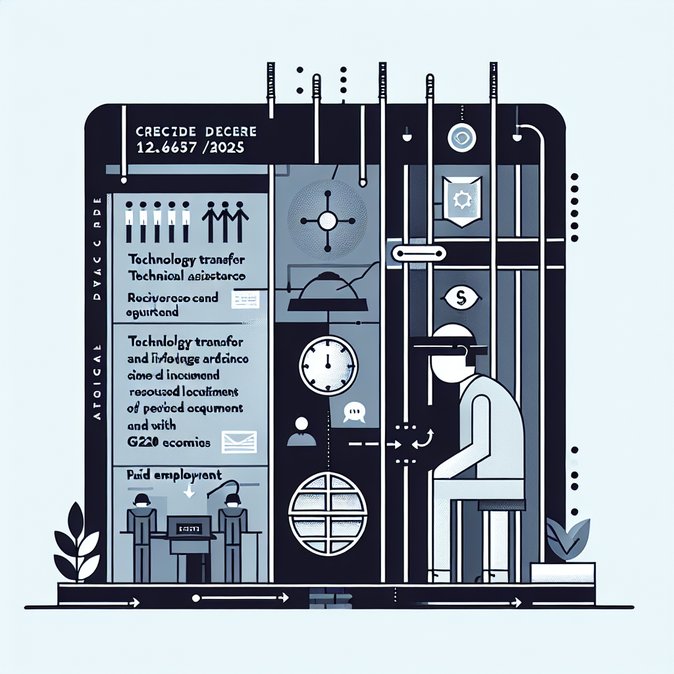
Brazil has taken a decisive step to modernise its corporate immigration framework. Decree No. 12.657/2025, published earlier in the month and highlighted in an Envoy Global alert on 23 October, rewrites Article 29 of the 2017 Migration Regulation (Decree 9.199/2017). The change expressly allows foreign business visitors to provide **technical assistance or technology transfer** in Brazil when the work is carried out under a formal contract, cooperation agreement or convention between a foreign company and a Brazilian counterpart.
Until now, even short on-site troubleshooting or warranty work normally required a Temporary Work Visa (VITEM V) and prior labour authorisation—often a multi-week, document-heavy process that deterred multinationals from dispatching engineers on tight deadlines. Under the new rule, visitors may enter on a standard Business/Visitor Visa (VIVIS) and remain for up to 180 days in any 12-month period, provided they are **not remunerated in Brazil** and keep within the visitor-stay limits. Paid work, local payroll and long-term assignments will still trigger the need for an employment-based visa.
The decree also formally creates a National Policy on Migration, Refuge and Statelessness, signalling the Lula administration’s drive to couple economic openness with humanitarian commitments. Inter-ministerial committees will monitor the impact on labour markets and ensure that the expanded visitor activities do not mask disguised employment.
For global mobility managers, the immediate benefit is speed: technicians can now be deployed in a matter of days rather than weeks. Companies should, however, update their compliance playbooks to track days-in-country and keep copies of the underlying service contracts in case of Federal Police inspections at airports. Immigration counsel recommend building an internal escalation matrix to decide when the visitor-visa route is no longer appropriate and a temporary work visa is required.
Longer term, the reform positions Brazil as a more attractive destination for after-sales support centres, joint R&D projects and agile tech-transfer teams—sectors where talent moves in increasingly short, project-based bursts. Multinationals that have been routing engineers through neighbouring countries to avoid Brazilian red tape may now reconsider direct entry.
Until now, even short on-site troubleshooting or warranty work normally required a Temporary Work Visa (VITEM V) and prior labour authorisation—often a multi-week, document-heavy process that deterred multinationals from dispatching engineers on tight deadlines. Under the new rule, visitors may enter on a standard Business/Visitor Visa (VIVIS) and remain for up to 180 days in any 12-month period, provided they are **not remunerated in Brazil** and keep within the visitor-stay limits. Paid work, local payroll and long-term assignments will still trigger the need for an employment-based visa.
The decree also formally creates a National Policy on Migration, Refuge and Statelessness, signalling the Lula administration’s drive to couple economic openness with humanitarian commitments. Inter-ministerial committees will monitor the impact on labour markets and ensure that the expanded visitor activities do not mask disguised employment.
For global mobility managers, the immediate benefit is speed: technicians can now be deployed in a matter of days rather than weeks. Companies should, however, update their compliance playbooks to track days-in-country and keep copies of the underlying service contracts in case of Federal Police inspections at airports. Immigration counsel recommend building an internal escalation matrix to decide when the visitor-visa route is no longer appropriate and a temporary work visa is required.
Longer term, the reform positions Brazil as a more attractive destination for after-sales support centres, joint R&D projects and agile tech-transfer teams—sectors where talent moves in increasingly short, project-based bursts. Multinationals that have been routing engineers through neighbouring countries to avoid Brazilian red tape may now reconsider direct entry.






